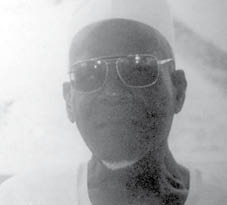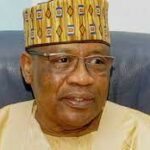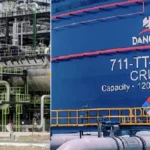Alhaji Aliko Dangote is the heir and successor to his great grandfather, Alhaji Alhassan Dantata (1877-1955), the patriarch of the wealthy Alasawa Family in Kano, widely believed to be the richest man in West Africa in his days. Aliko Dangote also rose to become the richest man in Africa, and the richest black man on planet earth. Though he was born two years after the death of his great grandfather, Dangote’s exploits conquered areas the legendary patriarch had not even explored.
His maternal grandfather, Alhaji Sanusi Dantata, father of Hajiya Mariya, Dangote’s mother, was equally a wealthy businessman until his death on April 15,1997, at about 82 years of age.
Sanusi Dantata began business at the age of seven, initially helping his father before he started his own business of buying and selling of groundnuts. He later established a bottling company, and an industry dealing in building materials. Sanusi Dantata played an important role in the upbringing of Aliko Dangote.
His father, Muhammadu Dangote, who lived at Alfindiki quarters in the ancient city of Kano, was an associate of the Dantatas. But the young Dangote spent most of his adolescent years with his maternal relations in Koki Quarters, where the Alasawas lived.
He was sent to Government College, Birnin Kudu, in present day Jigawa State, for his secondary school education. He met and fraternised with school mates like Abba Rilwanu, Abdulkadir Ahmed and Muhammad Sabo Nakudu. Nakudu’s foray into politics saw him elected as member of the House of Representatives and later senator representing Jigawa Central zone. Nakudu, like Dangote, is a businessman and an industrialist.
Sources said Dangote may have inherited the knack for business from his uncle, Alhaji Usman Amaka Dantata, who was very wealthy, even at a young age. Amaka Dantata first introduced Dangote to the cement business and reportedly gave him N500,000 to start trading in commodities, including cement, rice and sugar.
Aliko’s relocation to Lagos from Kano in 1977, in his early 20s, consolidated the Dangote trading business, dealing largely in bagged cement, which easily began to yield dividends and blossomed for him. Thus, the Dangote Group was established, specialising essentially, in trading of commodities.
While Dangote built his business empire in Lagos, establishing himself as a manufacturing giant from a commodity trader, his great grandfather lost his fortune to thieves in Ebuta-Metta in Lagos, while on transit from Ghana, at some point. The great grandfather recovered from the loss within a short period of time. He was the first to open an account when the Bank of British West Africa came to Kano in 1929.
Unlike his uncle, Amaka Dantata, who maintained a palm beach residence in the United States and many palatial mansions home and abroad, with fleet of private aircraft, Dangote has no house abroad except in Lagos and Kano. He reportedly sold houses he had earlier acquired abroad to invest the money in his manufacturing firms.
Chairman, Kano Eminent Persons Forum (EPF), Ambassador Mukhtar Gashash, described Aliko Dangote as “a quintessential businessman”, who is always ready to explore opportunities that are financially rewarding.
Gashash said Dangote’s philosophy in business revolves around principles such as hard work, perseverance and innovation.
“Dangote believes in the importance of investing in sectors that have a significant impact on the society such as infrastructure, agriculture and manufacturing.
“One of Dangote’s key philosophies is focusing on local production that reduces dependence on imports. This approach not only boosts the economy, but also creates job opportunities, and helps in developing local industries”, he said.
He said by prioritising the growth of businesses, Dangote is contributing to the overall development of the country.
The Kano EPF chairman added: “His company, Dangote Cement, has become a leading player in the cement industry, not only in Nigeria, but across Africa. Dangote’s vision and strategic investments have propelled his company to great heights, making it one of the largest cement producers on the continent,” he said.
According to him, Dangote’s diversified business interests in sectors such as sugar, salt, flour and oil refining further solidify his position as a business leader, noting that his exploits demonstrate his ability to identify opportunities, take calculated risks and drive growth in multiple industries.
For him, Aliko Dangote’s business philosophy combined with his strategic exploits cemented his legacy as a visionary entrepreneur.
Similarly, Chairman, Singer Market Traders Association, Alhaji Junaidu Muhammad Zakari, told Weekend Trust that Aliko Dangote has made significant contributions to the growth of businesses in Kano, particularly in Singer Market, having started his business as a trader over 30 years ago.
Traders of flour, sugar, rice, noodles, he said, received support from him individually and collectively.
“He is ever willing to assist traders whenever we approach him because of his patriotic zeal to support Kano traders, besides giving employment opportunities to truck drivers and factory workers in his company,” he said.
He dismissed the accusation of monopolistic tendencies against Dangote, saying: “When Alhaji ventured into flour, he met other competitors”.
He added that Aliko’s sugar business was not monopolistic as widely claimed. Rather, it helped discourage sugar importation into the country.
Worried by the developments around Dangote and his refinery in Lagos, a project the company invested about $20 billion, the Kano State Chamber of Commerce, Mines, Industry and Agriculture (KACCIMA), to which Dangote is patron, decried what it described as an attempt to frustrate Aliko to shelve his plan to establish a steel development plant in the country.
President of the Chamber, Alhaji Garba Imam, was out of the country as at the time of filing this report, but an official of the chamber who preferred anonymity, told Weekend Trust that KACCIMA had written to Dangote to encourage him to persevere and focus on his business plans, irrespective of what he called the attempted “sabotage”, intended to halt the diversification of the African richest man’s business interests.
The Dangote Group, it was gathered, has been a major financier of the Chamber’s annual trade fairs in Kano in the past 45 years.
A retired permanent secretary and Dangote’s senior at Government College, Birnin Kudu, who pleaded anonymity, also expressed worry that “some elements” were trying to frustrate Dangote, who, he said, has been very good to his friends, associates and to the country.
Shehu Alhaji Musa, a professor of Agricultural Economics and former Vice Chancellor, Kano State University of Science and Technology, later renamed Aliko Dangote University of Science and Technology, had the opportunity of working with the business mogul for nine years.
He said the Dangote Group has been doing a lot, not just in the oil sector, but in food and agriculture value chain, particularly in the area of rice production, tomato and sugarcane production. He said subjecting a $20 billion investment to unnecessary criticism may discourage further investments into the country.
“For me, the controversy is uncalled for and the labelling of Dangote as monopolistic is underserving. Even if you argue about the quality, other countries in Europe and Asia did not reach the pinnacle in one day”, the professor said.
Nigeria, he said, must be seen to be protecting its local industries and providing them with the opportunity to flourish. He said the university named after Aliko has benefitted from the magnanimity of Dangote in many areas, including linking the institution to the National Independent Power Project (NIPP), provision of male and female hostels, employment of foreign professors, supply of generator sets, and settlement of electricity bills, in addition to a pledge to build a six-storey Senate building for it.
Aliko Dangote had built a N1.2 billion building in Bayero University, Kano, to serve as an incubation centre for entrepreneurship and business development in the country.
The project was in fulfillment of a promise he made during a convocation ceremony while Professor Attahiru Jega was the vice chancellor.
Aliko’s activities through the Dangote Foundation are reminiscent of his great grandfather’s humanitarian gestures. Dantata had in 1940/41 sent surplus of food stuff to Sokoto, after a drought- induced famine hit residents, forcing Sultan Hassan Dan Mu’azu to seek help from the then Emir of Kano, Abdullahi Bayero. Dantata also sent 10,000 sacks of grains to Katsina to mitigate sufferings from a famine that was known as “Mai Danbuhu”.

 Join Daily Trust WhatsApp Community For Quick Access To News and Happenings Around You.
Join Daily Trust WhatsApp Community For Quick Access To News and Happenings Around You.


